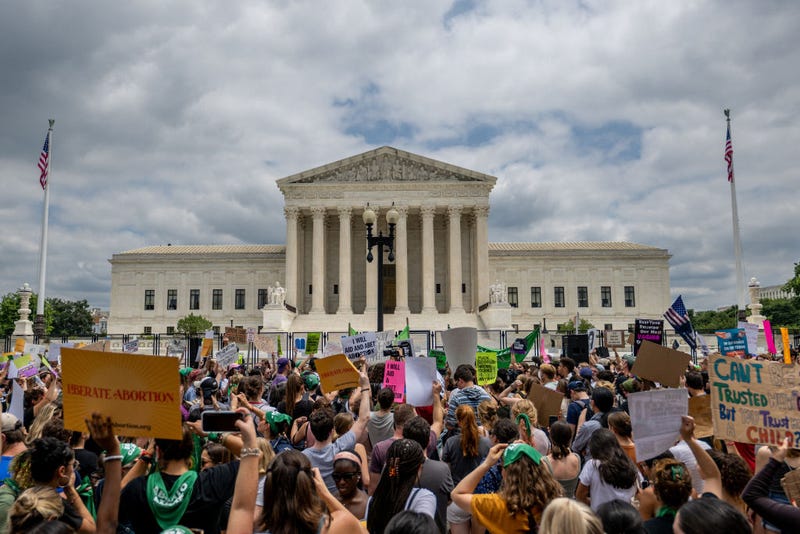
The U.S. Supreme Court on Friday overturned Roe v. Wade, the 1973 decision providing a constitutional right to abortion. The ruling is expected to lead to abortion bans in roughly half of U.S. states. In anticipation of the decision, several states led by Democrats have taken steps to protect abortion access.

The ruling also sets up the potential for legal fights between the states over whether providers and those who help women obtain abortions can be sued or prosecuted.
Kansas has a legislature controlled by Republicans who want to ban or restrict access to abortions, but a Democratic governor who supports access and is up for re-election this year.
Under current law, Kansas does not ban most abortions until the 22nd week of pregnancy, when they’re allowed only to save a patient’s life or to prevent “a substantial and irreversible physical impairment of a major bodily function.” The state Supreme Court in 2019 declared that access to abortion is a “fundamental” right under the state constitution, granting stronger protections to abortion rights than the U.S. Constitution does currently. State law, however, doesn’t allow providers to dispense abortion medications through telemedicine consultations.
The Kansas Supreme Court blocked enforcement of a 2015 legislative ban on a common second-trimester procedure, and abortion opponents fear a host of other rules could fall to legal challenges in the near future. The GOP-controlled Legislature responded by putting a constitutional amendment on the ballot during the Aug. 2 primary, when turnout is expected to be much lower than in a general election and will likely see a higher proportion of Republicans voting. The amendment would declare that the state constitution does not grant a right to abortion. It would allow lawmakers to restrict abortion as much as the federal courts will allow.
If voters approve the amendment, the Kansas Legislature would still have to approve the new restrictions, and lawmakers are out of session until January 2023. They can call themselves into special session with two-thirds majorities, but they’re likely to wait until after voters decide in the November general election whether to give Democratic Gov. Laura Kelly a second term.
Missouri law previously allowed abortions up until 22 weeks of pregnancy. But a 2019 state law banned abortions “except in cases of medical emergency,” contingent upon the U.S. Supreme Court overturning its 1973 Roe v. Wade decision. Under that Missouri law, performing an illegal abortion is a felony punishable by 5 to 15 years in prison, though women receiving abortions cannot be prosecuted.
The 2019 law contained a provision making it effective upon notification by the attorney general, governor or Legislature that the U.S. Supreme Court had overruled Roe v. Wade. Moments after Friday’s Supreme Court decision, Attorney General Eric Schmitt and Gov. Mike Parson filed the necessary paperwork for Missouri’s law to kick in. State statutes were subsequently updated online Friday saying the abortion-ban law had taken effect.
Some Missouri residents wanting abortions are likely to travel to neighboring states, including Kansas and Illinois. The Kansas Supreme Court in 2019 declared that access to abortion is a “fundamental” right under the state constitution. Even without the ban in Missouri, the number of Missouri patients seeking abortions in Kansas has gone up in recent years, increasing about 8% from 2020 to 2021. A new Illinois logistics center near St. Louis helps women from out of state find travel, lodging and childcare if they need help getting to the area for an abortion, and it connects them with funding sources.
